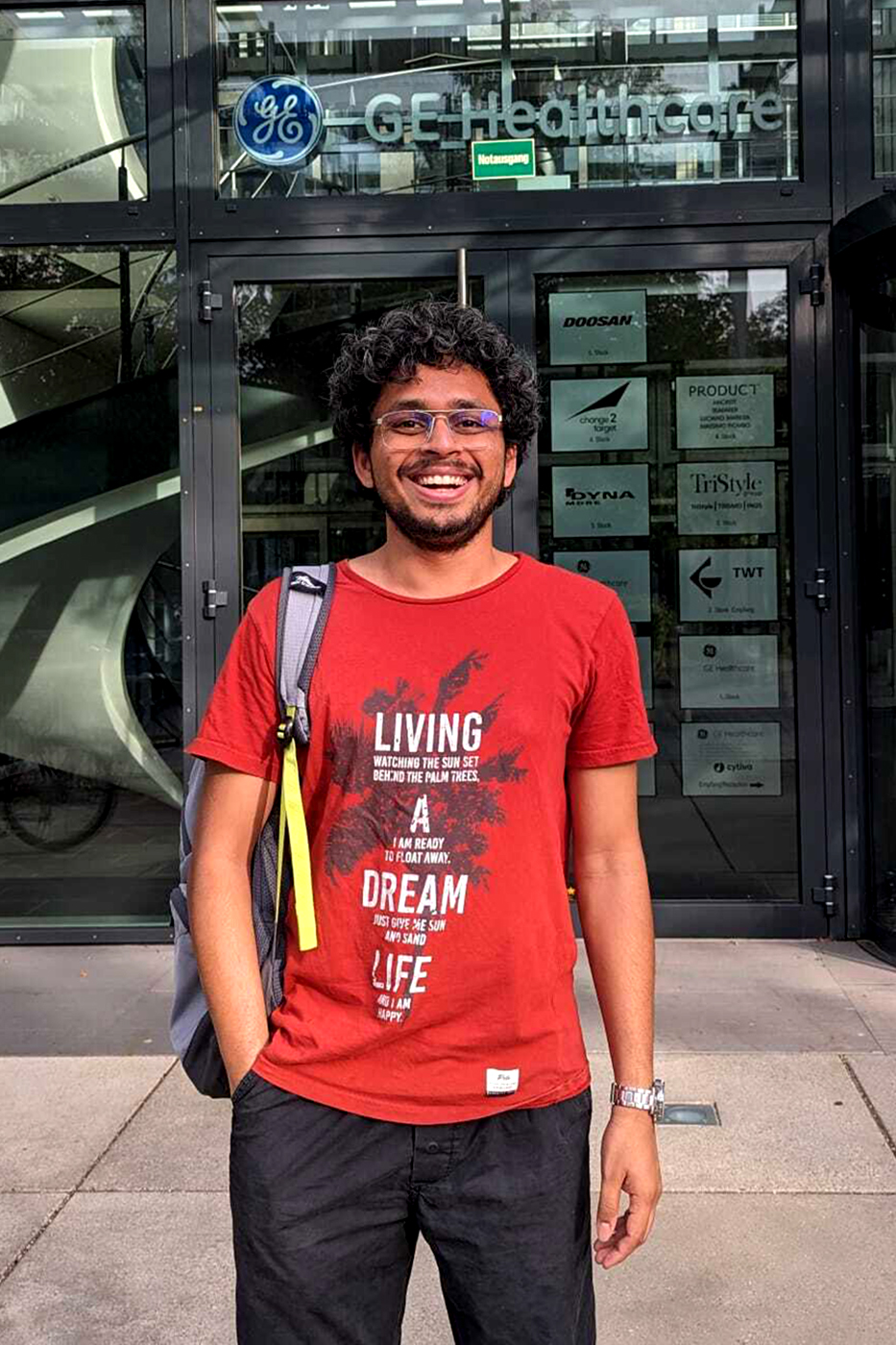Robotics Student Researching Autonomous Vehicle Solutions
Srinivas Peri, MS’24, robotics, is completing a six-month co-op at TWT Science & Innovation in Germany, where he is researching and developing autonomous vehicle solutions.
This article originally appeared on Northeastern Global News. It was published by Cesareo Contreras. Main photo: Srinivas Peri is completing a co-op at TWT Science and Innovation and is working with simulation software designed for autonomous vehicles. Photo by Matthew Modoono/Northeastern University
Srinivas Peri hopes to one day develop robots used to mine the surface of Mars.

Srinivas Peri stands in front of TWT building where he is completing at six-month co-op. Courtesy photo
“It might be too ambitious right now, but that’s a thing I’m looking forward to,” the Northeastern robotics graduate student says, noting he has quite a bit to learn before accomplishing that goal.
Since starting the masters in robotics program at the university last September, Peri has been able to learn more about the technologies that make those kinds of robots tick — from their navigation and sensing capabilities to the mechanisms and control systems that enable their movement.
He’s also getting some real-world experience.
Peri is in Germany right now completing a six-month co-op at TWT Science & Innovation, a product development consulting firm that works with some of the biggest automotive and technology companies in the world, including BMW, Audi and Siemens.
Peri is specifically learning about autonomous vehicles, researching and developing solutions to help bring the technology to more businesses and consumers. He is particularly interested in understanding traffic environments and the conditions autonomous vehicles best need to navigate.
The “robot cars” out in the field today are navigating in a world largely designed for humans, he says.
“Our entire traffic model is based on human intentions, not from the perspective of robot taxis or autonomous vehicles,” he says. “For this transition to be done, a lot of groundwork has to be done.”
Peri has been in Germany since June, and he has been able to access some next-level technologies. One of the biggest reasons he wanted to complete his co-op at TWT was because of its proprietary simulation technology, which is designed to test environments for autonomous vehicles, he says.
And he’s taking advantage of the lessons and skills he learned in his first few semesters at Northeastern, particularly in courses he took centered on robot sensing, computer vision and pattern recognition.
Peri’s interest in robotics began while he was an undergraduate student in India getting a bachelor’s degree in electronics and communication.
He joined the university’s robotics club his freshman year and became fascinated with how the systems worked.
Read full story at Northeastern Global News.